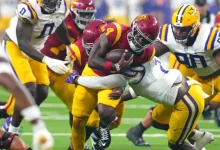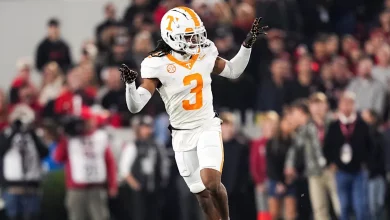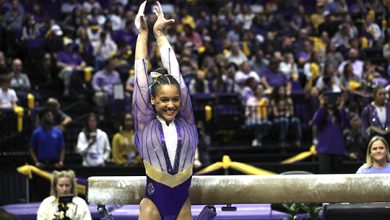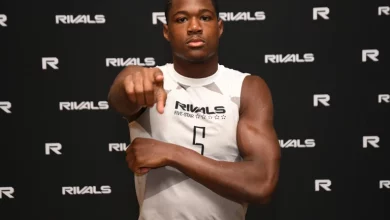Nico Iamaleava stated that his transfer from Tennessee to UCLA was motivated by a desire to be nearer to family, rather than financial considerations.
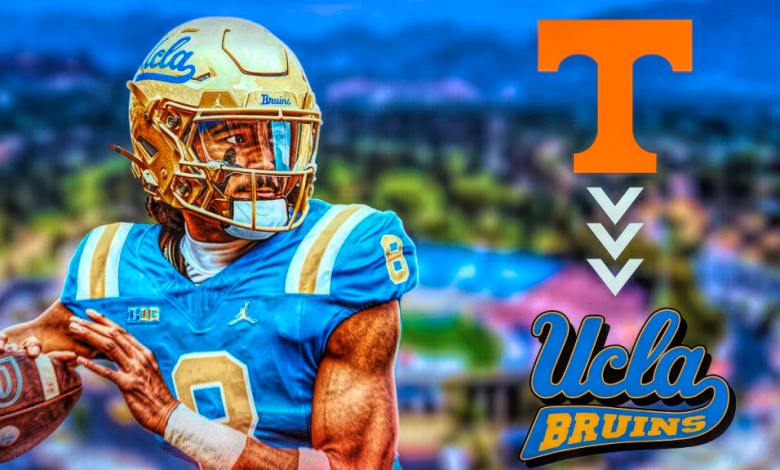
In recent years, the landscape of college football has undergone significant transformation, largely driven by the transfer portal, NIL (Name, Image, Likeness) opportunities, and evolving athlete motivations. Among the high-profile transfers, Nico Iamaleava’s move from Tennessee to UCLA garnered considerable attention, not only because of his status as a top quarterback recruit but also due to his candid assertion that his decision was rooted in personal reasons—specifically, the desire to be closer to family—rather than financial incentives. This statement challenges the often-assumed narrative that NIL and financial considerations are primary motivators behind transfers, highlighting the complex interplay of personal values, emotional needs, and career aspirations. This analysis explores the depth of Iamaleava’s assertion, contextualizes it within the broader college football environment, and examines the significance of family influence in athlete decisions.
Background: Nico Iamaleava’s Recruitment and Transfer
Nico Iamaleava, a highly touted quarterback recruit, initially committed to Tennessee and was viewed as a potential future star for the Volunteers. His recruitment process was highly publicized, with analysts and fans eager to see how he would develop within Tennessee’s system. However, after a period of uncertainty and some off-field issues, Iamaleava announced his transfer to UCLA, a move that surprised many given his initial commitment and the competitive landscape of college football.
While transfer decisions often involve a confluence of factors—including playing time, coaching staff, program success, NIL opportunities, and academic considerations—Iamaleava’s explicit emphasis on proximity to family stands out as a reminder that personal and emotional considerations remain central to many athletes’ choices. His statement underscores that, beyond the allure of NIL deals or athletic prospects, personal well-being and familial bonds hold significant sway.
The Role of Family in College Athletes’ Decision-Making
Family influence is a longstanding and vital aspect of athletes’ lives, particularly for young players navigating the complex transition from high school to college sports. For many, family provides emotional support, stability, and a sense of home—elements that can be crucial during a period of significant change and pressure.
Emotional and Psychological Factors
Being close to family can alleviate feelings of homesickness, reduce stress, and foster mental well-being. For athletes like Iamaleava, who might have experienced cultural, social, or personal challenges in a new environment, proximity to loved ones offers comfort and grounding. The psychological benefits of familial support are well-documented, with research indicating that athletes with strong family ties often perform better and exhibit greater resilience.
Practical Considerations
Beyond emotional support, being near family can provide practical benefits: assistance with day-to-day life, logistical support, and a sense of continuity. For athletes who are still developing life skills, having family nearby can ease the transition and allow them to focus more on their athletic development.
Family’s Role in Athletic Development
Families often serve as coaches, mentors, and advocates, helping athletes navigate recruitment, college life, and future career planning. Their involvement can influence decisions about transfers, academic pursuits, and life after sports.
Nico Iamaleava’s Statement: Interpreting the Motive
Iamaleava’s assertion that his transfer was about being closer to family rather than money provides insight into his personal values and priorities. It also reflects a broader trend among athletes seeking authenticity and alignment with their personal circumstances.
Authenticity and Personal Values
In an era where NIL opportunities can be lucrative, Iamaleava’s emphasis on family suggests that he prioritizes personal relationships and emotional well-being over financial gains. This perspective counters the misconception that all athlete transfers are driven by monetary incentives, highlighting that many athletes value intangible benefits.
Implications for NIL and Transfer Narratives
While NIL has undoubtedly influenced transfer decisions—either as a motivation or as a factor in the decision-making process—Iamaleava’s statement emphasizes that athletes are multi-dimensional individuals with complex motivations. Recognizing this complexity is essential for coaches, programs, and fans to understand athlete choices holistically.
Impact on Public Perception
By publicly stating that his move was about family, Iamaleava humanizes himself and promotes a narrative that prioritizes personal health and relationships. This can foster greater empathy among fans and stakeholders who might otherwise view transfers through a purely transactional lens.
Broader Context: Family Influence in College Football Transfers
Iamaleava’s case is not isolated. Many athletes across college sports cite family considerations as reasons for transferring or making career decisions. The transfer portal has empowered athletes to prioritize personal needs, leading to more transparent and emotionally driven choices.
Case Studies and Trends
Proximity to Family During Pandemic: The COVID-19 pandemic underscored the importance of family, prompting athletes to seek transfers closer to home or to programs where loved ones could provide support.
Cultural and Personal Backgrounds: Athletes from diverse cultural backgrounds often emphasize family ties, viewing their sporting careers as intertwined with their familial identities.
Post-NIL Era: While NIL has created new financial opportunities, many athletes still prioritize family and personal well-being, indicating that money is not always the primary driver.
Program and Coaching Responses
Recognizing the importance of family, some programs actively facilitate family involvement, hosting family weekends, and including loved ones in team events. Such initiatives can enhance athlete retention and satisfaction.
Personal Significance of Choosing Family Over Financial Gain
Iamaleava’s decision underscores a fundamental truth: athletes are individuals with unique values, priorities, and life circumstances. For some, the allure of NIL and athletic success must be balanced against personal needs.
Psychological Well-Being and Performance
Choosing proximity to family can bolster an athlete’s mental health, leading to better performance and a more fulfilling college experience. Conversely, being distant from loved ones can introduce stress and distract from athletic goals.
Long-Term Considerations
For many athletes, the decision to prioritize family may influence their long-term career and life choices. Maintaining close relationships and emotional stability can have lasting benefits beyond college sports.
Authenticity and Personal Fulfillment
Aligning one’s environment with core values fosters authenticity and personal fulfillment. For Iamaleava, this alignment appears to be a key motivator behind his transfer.
Implications for College Football and Athlete Welfare
Iamaleava’s statement invites reflection on how the sport and its stakeholders support athlete well-being.
Holistic Athlete Support
Programs should recognize that athletes’ motivations are multifaceted. Providing emotional, psychological, and social support alongside athletic development is crucial.
Transfer Decisions and Transparency
Encouraging athletes to openly communicate their reasons fosters a culture of honesty and understanding, reducing stigma around transfers motivated by personal reasons.
Balancing Athletic and Personal Goals
Institutions must create environments where athletes can pursue both athletic excellence and personal fulfillment, including proximity to family.
Nico Iamaleava’s declaration that his transfer from Tennessee to UCLA was driven by a desire to be closer to family, not money, offers a compelling perspective into the personal motivations of college athletes. It challenges stereotypes that NIL and financial considerations dominate transfer decisions, highlighting the importance of emotional and personal factors. His stance underscores that athletes are multidimensional individuals whose choices are shaped by a constellation of values, relationships, and well-being. Recognizing and respecting these motivations fosters a more empathetic and holistic approach to athlete development, transfer policies, and program support. Ultimately, Iamaleava’s decision exemplifies that, for many athletes, family remains a central pillar in their lives—one that can influence career paths and life trajectories far beyond the playing field.


